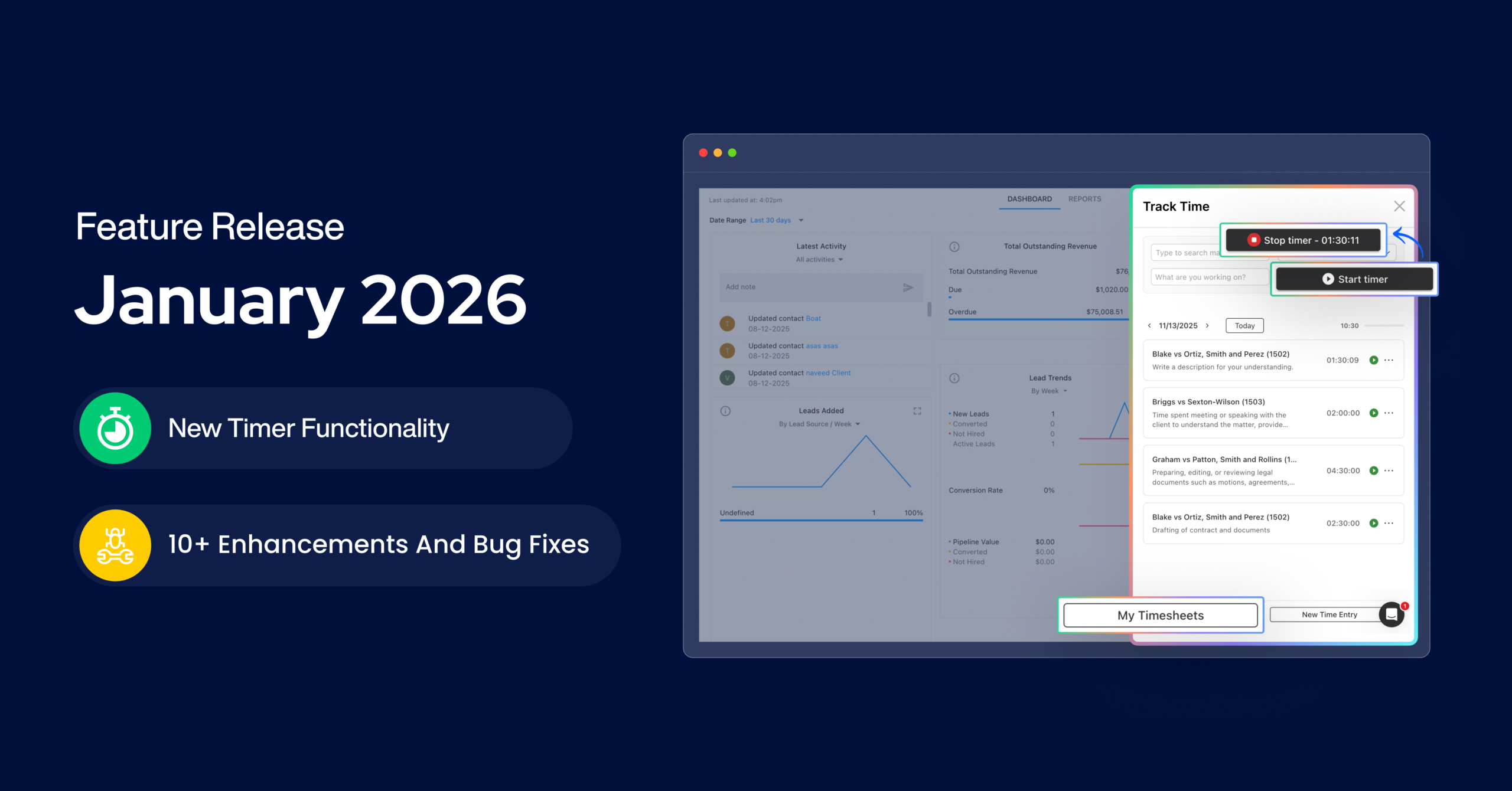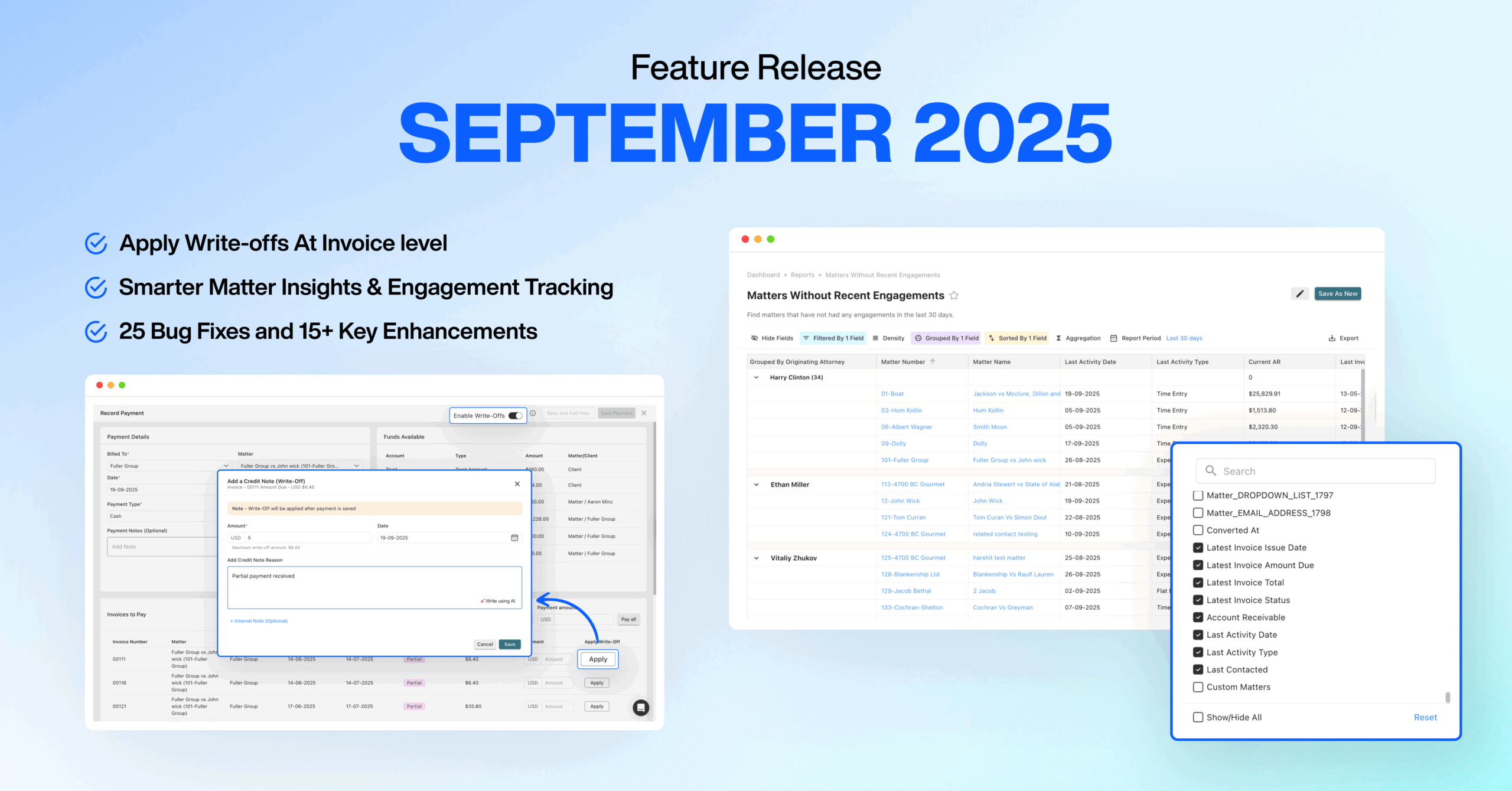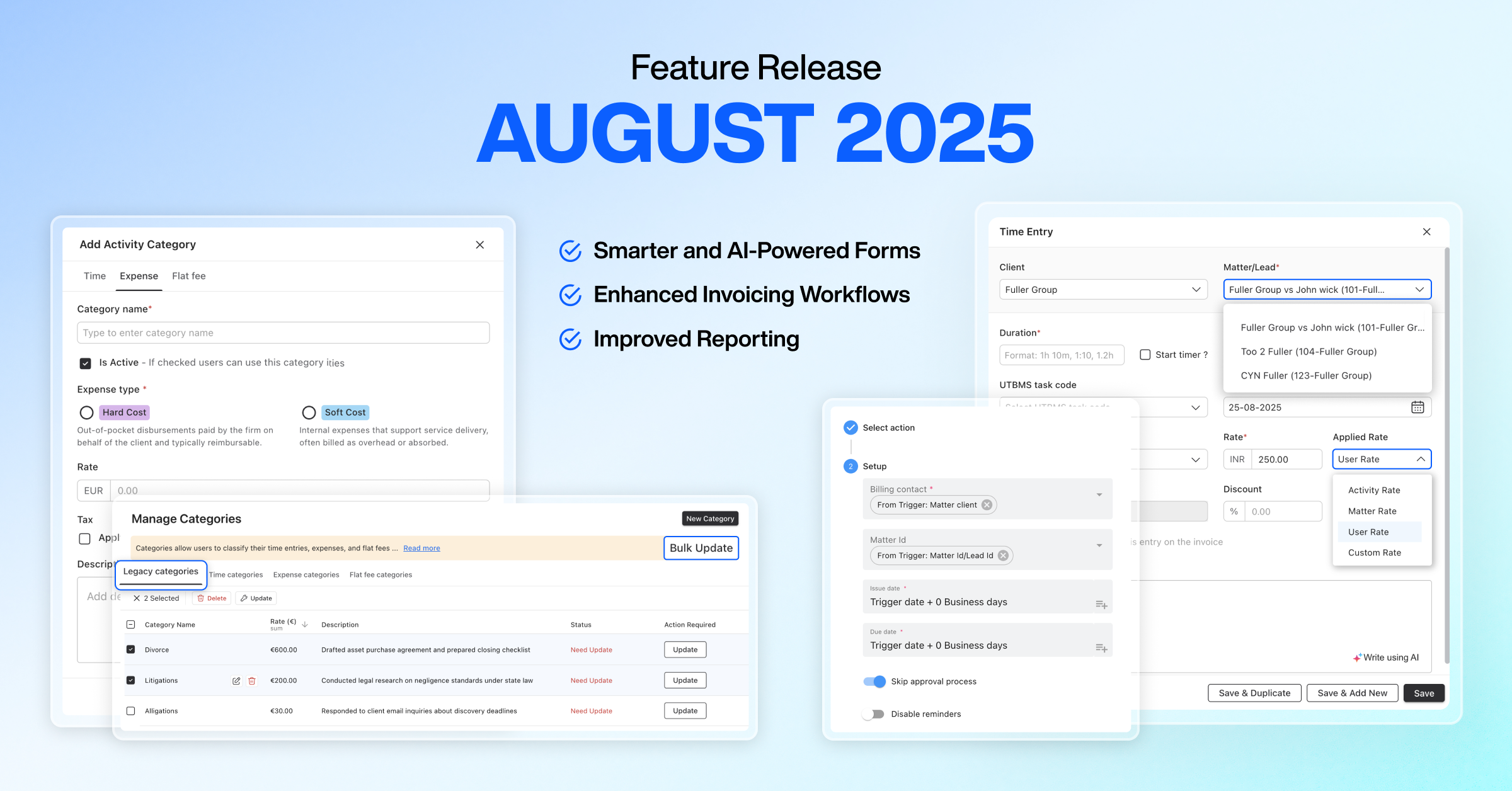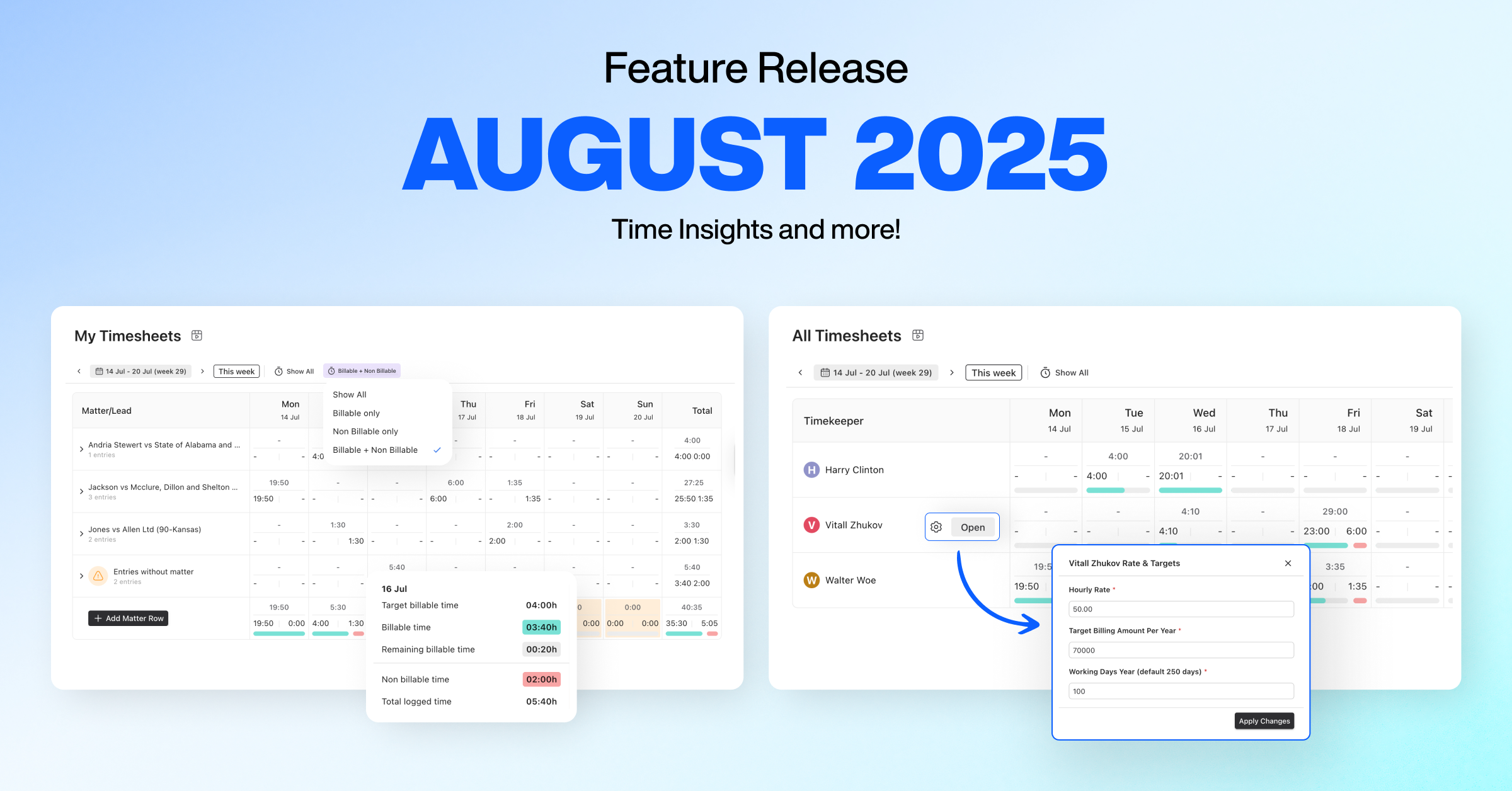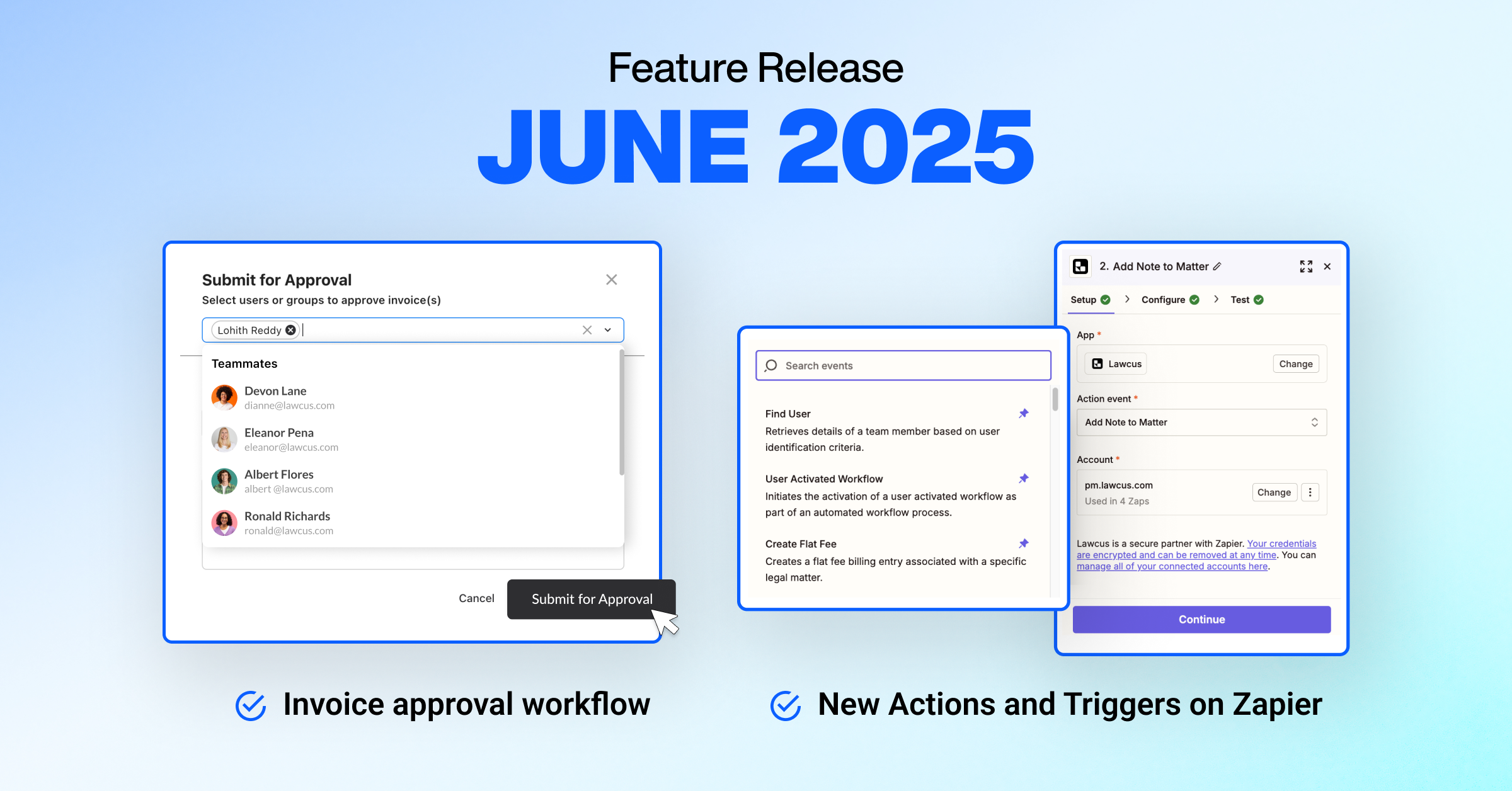Top 5 Legal Practice Management Software Solutions for Law Firms
10th June 2025
Legal practice management software solutions have become the backbone of modern law firms. From client intake and billing to document automation and workflow collaboration, these platforms are designed to simplify administrative tasks, allowing lawyers to focus on practicing law. Yet, not all systems are created equal. Some excel in client communication, others in billing or marketing automation. Choosing the right tool depends on your firm’s specific needs.
Let’s take a closer look at some of the leading platforms in 2025, their strengths, unique selling points, and why Lawcus ultimately provides the most well-rounded approach for forward-thinking firms.

List of top 5 legal practice management software solutions
MyCase
MyCase has earned a strong reputation as a reliable, all-in-one platform for small and mid-sized firms. Its USP lies in simplicity and accessibility. With built-in case management, document storage, calendaring, and billing, it offers everything a firm needs to run day-to-day operations without requiring heavy customization. One of its biggest advantages is its mobile-first approach, which allows attorneys and staff to access matters, share documents, and invoice clients directly from the mobile app. However, while MyCase covers the basics well, firms that need advanced workflow automation or deep customization may find it somewhat limited.
PracticePanther
PracticePanther stands out for its balance of usability and integrations. It is known for a clean, intuitive interface combined with powerful time and expense tracking, automated billing, and a wide range of third-party integrations with tools like QuickBooks, Dropbox, and Microsoft 365. This makes it ideal for firms that want to plug legal workflows into an existing ecosystem of tools. Its USP is how quickly firms can adopt it; many lawyers appreciate that they can “learn it in a day.” However, while it excels in ease of use, its automation and reporting depth are not as advanced as those of some newer competitors.
Lawmatics
Lawmatics occupies a distinct space, focusing primarily on client intake, CRM, and marketing automation. Its USP is the ability to help firms grow their client base by managing leads, automating follow-up emails, tracking conversions, and even analyzing marketing ROI. For firms that prioritize client acquisition and nurturing, Lawmatics is unmatched in its capabilities. However, it is not a complete practice management system; its billing, accounting, and deep matter management tools are limited. This means most firms end up using Lawmatics alongside another platform rather than as a single source of truth.
Smokeball
Smokeball differentiates itself with desktop-to-cloud hybrid functionality and productivity tracking. Especially popular among Windows-based firms, Smokeball automates document creation with impressive templates and tracks every minute spent working, even when time isn’t manually recorded. This automatic time capture helps firms recover billable hours that would otherwise be lost. Its desktop-first model, however, can feel restrictive to firms seeking a purely cloud-based system accessible from anywhere. For teams that prioritize document automation and productivity analytics, Smokeball is a strong contender.
Other Notables: Cosmolex, Bill4Time, Actionstep, Zola Suite
Each of these legal practice management software solutions has carved out its own niche. Cosmolex seamlessly integrates trust accounting and billing, making it an attractive option for firms with complex financial workflows. Bill4Time emphasizes strong time tracking and billing capabilities, making it ideal for firms that bill heavily by the hour. Actionstep is highly customizable, particularly suited for mid-to-large firms that want workflows tailored to specific practice areas. Zola Suite offers a well-rounded cloud solution with built-in accounting, appealing to firms seeking fewer third-party integrations. While each brings unique strengths, they are often specialized rather than holistic.
Why Lawcus Rises Above the Rest
While each of the above platforms has clear strengths, Lawcus combines the best of all worlds into a single, modern solution. Its USP is no-code automation, allowing firms to design workflows that automatically trigger tasks, reminders, invoices, and even client updates without technical expertise. This automation extends across the entire matter lifecycle, eliminating repetitive administrative work.
Beyond automation, Lawcus is matter-centric: every document, conversation, task, and note is tied directly to a matter, ensuring complete visibility and eliminating the chaos of fragmented email threads. It also provides a built-in client portal for secure communication and document sharing, improving client satisfaction and transparency.
Where Lawcus truly outpaces older platforms is in its reporting and analytics. With customizable dashboards, firms can track profitability, monitor attorney performance, and forecast cash flow in real time. In addition, Lawcus maintains bank-grade security with role-based access controls, two-factor authentication, and data encryption, providing firms with peace of mind when handling sensitive client information.
Unlike legacy providers that update slowly, Lawcus releases frequent feature enhancements in response to direct user feedback. From AI-assisted time narratives to smarter activity forms and streamlined invoicing, Lawcus is continually evolving, helping firms stay ahead in a fast-changing legal tech landscape.
Final Thoughts
If your firm is considering new legal practice management software solution, it’s essential to understand the strengths of each platform. MyCase is great for simplicity, Panther is great for integrations, Lawmatics is great for client intake, and Smokeball is great for document automation. But if you want a single, future-ready platform that streamlines operations, improves client communication, automates workflows, and delivers actionable insights, Lawcus deserves to be at the very top of your shortlist.


 Wisetime
Wisetime 


